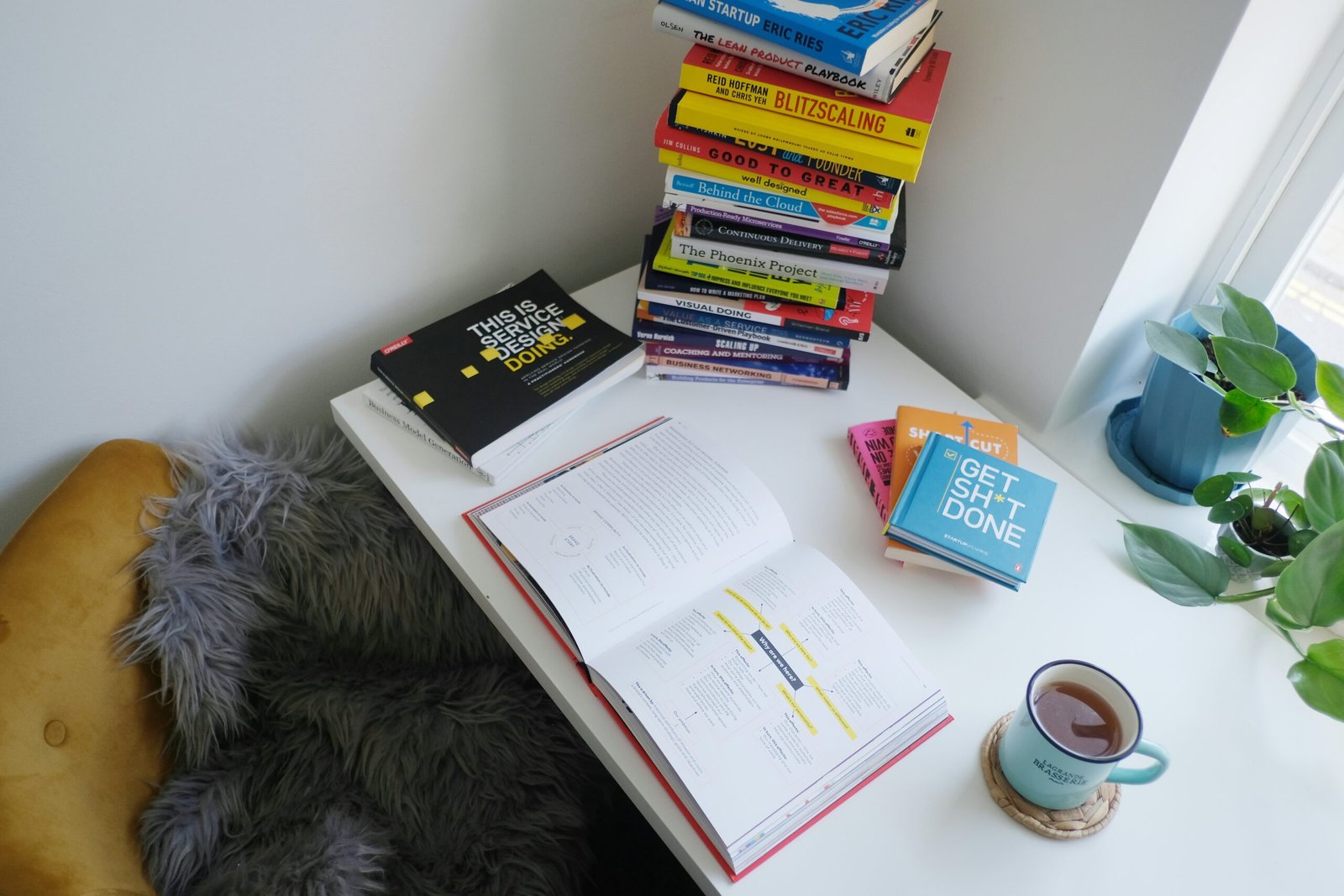Self-improvement means trying to become better in some way. It can relate to many aspects of your life, including your personality, career, or habits. Self-improvement is about making positive changes to optimize who you are.
Self-improvement is about bettering yourself and constantly learning new things about yourself. Everyone should make an effort to improve themselves in order to live a happier life.
We all are different and no one is the same. Each person has their own strengths, weaknesses, and potential for self-improvement.
The world is constantly changing, and people need to know how to adapt. Life is unpredictable and will throw you many curveballs. By improving yourself, you can easily overcome these obstacles.
9 Ways To Be The Best Version of Yourself
1. Set Goals For Yourself
Setting goals for yourself is a great way to start improving yourself. When you have goals, you are more likely to succeed because you know what you’re working towards.
A great way to set goals for yourself is by making them specific. For example, don’t say, “I want to be healthier.” Say, “I will exercise for 30 minutes 5 times a week for the next 3 months.”
Not only does this give you something to work towards, but you can look back in 3 months and see your progress. You’re also more likely to achieve your goal because it’s specific.
Another thing you can do when setting goals is break them down. If your goal is to learn a new language, break that goal into chunks.
For example, you can complete an online course. You can find someone to practice with twice a week. You can learn 5 new words a day.
You will get there one step at a time. When you break your goals down like this, you won’t feel overwhelmed.
Read Also: 50 Questions to Ask Yourself to Find Your Purpose
2. Practice Positive Thinking

Have you ever heard the saying, “You are what you think”? What you think about yourself and your life can literally shape your life.
When we practice positive thinking, we can train our brains to think happier, and in return we will have a happier life.
Studies have shown that there are many benefits to thinking positively. Things like better mental health, better physical health, and coping with difficult times.
One way you can practice positive thinking is by reframing your negative thoughts. This is when you take a negative thought and turn it into a positive one.
Let’s say you’re worried about a project that you work on at your job. You keep thinking, “I’m going to fail at this.”
Try telling yourself, “I will do my best on this project.” By simply changing your self-talk, you are opening yourself up to positive support.
Surrounding yourself with positive people can also help you think more positively. Try to hang out with friends that make you feel good about yourself.
The more time you spend with positive people, the more positive you will be. Try going out and doing things that will benefit your well-being.
Read Also: 10 Healthy Habits That Can Boost Your Mental Health
3. Develop Healthy Habits
One of the best things you can do to better yourself is to develop healthy habits. Having good habits like exercising, eating right, and sleeping will allow you to have a happy and balanced life.
Exercising is very important when it comes to living a healthy lifestyle. You should aim to get 150 minutes of moderate activity per week.
You should also try to do strength training at least 2 times per week. Go for a walk, bike ride, or take a dance class. Exercising with other people is much more fun!
You can also try squeezing in mini workouts throughout your day. Take the stairs instead of the elevator or go for a walk during your lunch break.
All of these things can help you live better and feel healthier. Not only will you feel better physically, but you’ll feel better mentally.
4. Eat a Well-Rounded Diet
Eating healthy is another way to help yourself be the best you. Try to fill your plate with vegetables, fruits, grains, lean proteins, and healthy fats.
If you cook at home, you have more control over what you eat. You’ll also be less tempted to eat out on busy weeks.
Plus, when you know what you are eating, you can control your portion sizes. Another thing you can do is prepare for your week on Sundays.
If you know you are going to have a busy week of cooking healthy meals, you are less likely to snack on junk food.
Make sure you are drinking enough water throughout the day as well. You should aim to drink at least 8 cups of water a day.
5. Get Enough Sleep
You should also make sure you are sleeping enough each night. Most adults need 7-9 hours of sleep each night.
Try to do things that will allow you to relax before bed. You can read a book or meditate before your bedtime.
You should also avoid looking at screens right before you go to bed. Try to sleep and wake up at the same time each day.
These things will allow you to have a better sleep each night.
Read Also: 9 Ways to Be the Best Version of Yourself
6. Build Strong Relationships
Another way to be your best self is to have strong relationships with your family, friends, and peers. When you have healthy relationships with others, you will create an environment that allows self-improvement to happen.
The people around you can affect your well-being either positively or negatively. Having positive people in your life will encourage you to be your best self.
6.1 Communicate
Communicating is key when trying to keep strong relationships with others. You should practice active listening when talking to your friends and family.
Always make sure that you are listening to what they are saying. Try your best to understand their point of view.
Eye contact is also a great way to understand what someone is saying. Ask questions if you don’t understand something.
6.2 Be a Supportive Friend
Always be sure to celebrate your friends and family when they reach their goals. It doesn’t have to be something big either.
If you know someone got a new job, congratulate them. If your friend lost 5 pounds, celebrate with them.
When you celebrate others, they will do the same for you. Not only will this make you feel like you are wanted, but you will be open to sharing more with your friends and family.
7. Embrace Change
Change is scary for most people. We as humans love to be comfortable, and being away from what we know can frighten us.
Change is something that we tend to avoid even though it’s happening whether we want it to or not.
Start to see change in a positive light. Change can open up new opportunities and allow you to broaden your horizons.
Accept the fear that you’re feeling, but push past it. Remind yourself that change doesn’t mean you are losing something.
You are simply changing and bettering yourself.
Try setting goals for yourself when change occurs. When you have goals that you’re working towards, it will make change less intimidating.
Your goals will give you something to focus on. Try breaking your goals down into small steps.
This will make your goals easier to achieve. Change is also something you cannot control, so learn to go with the flow.
Always be willing to adapt to new situations even if they are challenging.
8. Learn From Failure
We all fail at one thing or another during our lives. Failure is a normal thing that happens to everyone.
What most people don’t understand is that every time you fail, you learn something new about yourself.
Failing allows us to reflect on what we did wrong and how we can better ourselves for next time.
Instead of telling yourself that you’re never going to get something right, ask yourself what you can learn from this failure.
Mistakes do not mean that you’re stupid. They simply mean that something didn’t work.
Every time you fail, you are one step closer to success. Remember that every successful person has failed multiple times.
They just didn’t let those failures stop them from reaching their goals. Never give up on yourself because of failure.
Read your failure and figure out what went wrong. Break down what happened and what you can do differently next time.
Doing this will only allow you to become better at problem-solving.
9. Find What You’re Passionate About

When you find what you’re passionate about, your life will be happier. If you love what you do every day, you will be living your best life.
Figure out what you love to do in your free time. Ask yourself, “What do I enjoy doing?”
Once you know what you’re passionate about, make time for it. You should try to do something that you love every day.
Doing things that you love will allow you to be the best version of you. Not only will you be happier, but you will feel more satisfied with life.
Read Also: 6 Reasons to Break Free from Your Comfort Zone
Practice Gratitude
If you want to be your best self, you should practice gratitude. Being grateful for the things that you have will allow you to have a more positive outlook on life.
Instead of focusing on what you don’t have, you will be focusing on what you do have. When you become aware of all the great things in your life, you will feel happier.
You should practice gratitude every day. Take a few minutes and write down 3-5 things that you are grateful for.
It can be something as simple as, “I’m grateful for my morning coffee.” Not only will this help you with negativity, but it can help you reframe your thoughts.
Take Time for Yourself
You should always make time for yourself! When you take care of yourself, you are able to better yourself.
There are so many ways you can practice self-care. You just have to figure out what self-care means to you!
Meditation and mindfulness are a great way to relax. Not only will it help you de-stress, but it can help with anxiety.
You should practice meditation every day, even if it’s for a few minutes. Self-care can also include exercising.
You should always make sure that you’re sleeping enough as well. When you sleep, your body is able to relax and rejuvenate.
Always make time to do things that you love. If you love painting, make sure you paint once a week!
Save the pin for later



